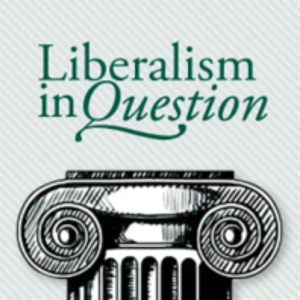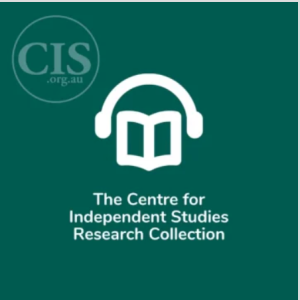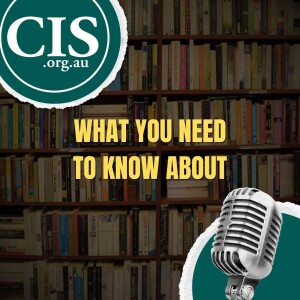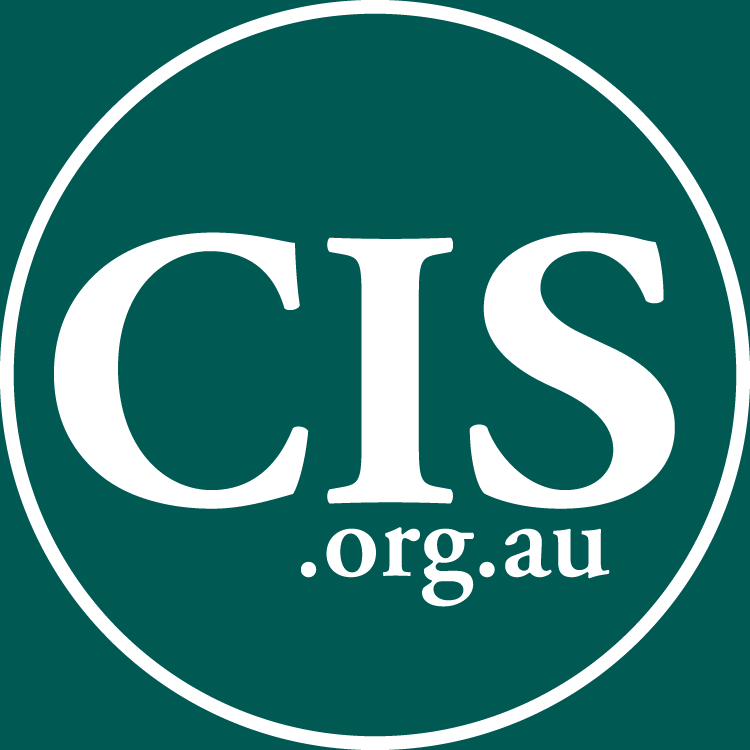Centre for Independent Studies
Let’s share good ideas. 💡 The Centre for Independent Studies promotes free choice and individual liberty and the open exchange of ideas. CIS encourages debate among leading academics, politicians, media and the public. We aim to make sure good policy ideas are heard and seriously considered so that Australia can prosper.
Episodes

Tuesday May 06, 2025
Tuesday May 06, 2025
Watch here: https://youtu.be/m1-tzuQjbFc
In this episode, we explore the history of evangelical Christianity in Australia with guest Stuart Piggin, a leading historian and author on the subject. Drawing on his extensive research, Piggin unpacks the complex relationship between evangelicalism and liberalism throughout Australian history. We examine how evangelical movements have shaped, and been shaped by, Australia's evolving political, social, and cultural landscapes—particularly the liberal values of individual freedom, moral reform, and civic responsibility.
🔹 Become a member: https://www.cis.org.au/membership-2-step-1/
🔹 Make a donation: https://www.cis.org.au/support/donate/today/
🔹 Learn more: https://www.cis.org.au/
Subscribe to all our shows:
Liberalism in Question features thought-provoking interviews with world experts in politics and culture from a Classical Liberal perspective. Subscribe here: https://liberalisminquestion.podbean.com/
The CIS Research Collection delivers our research papers in an audio format so that you can listen to them on the go. Subscribe here: https://cisresearch.podbean.com/
What You Need to Know About delivers concise insights from CIS experts, breaking down complex topics like policy, economics, and societal challenges. Subscribe here: https://whatyouneedtoknowabout.podbean.com/
CIS Events Experience: From the studios of CIS our events team brings you engaging discussions from our live events, featuring lectures, panel discussions, and conversations with leading experts: https://cisevents.podbean.com/
All our links: https://linktr.ee/centreforindependentstudies

Tuesday Apr 15, 2025
Tuesday Apr 15, 2025
In this episode of Liberalism in Question, we’re joined by Eamonn Butler, Director of the Adam Smith Institute, to discuss the economic philosophy of liberalism. From Adam Smith’s "invisible hand" to modern free-market principles, we explore how liberal economic thought has shaped prosperity, innovation, and policy.
How do Smith’s ideas on free markets, competition, and limited government remain relevant today? What lessons can we learn from classical liberal thinkers to tackle contemporary economic challenges? Join us for a fascinating conversation on the foundations of economic liberalism and its ongoing impact.
👉 Help promote sound economics:
🔹 Become a member: https://www.cis.org.au/membership-2-step-1/
🔹 Make a donation: https://www.cis.org.au/support/donate/today/
🔹 Make a donation: Learn more: https://www.cis.org.au/
👉 FURTHER READING: Super for Housing: https://www.cis.org.au/publication/super-for-housing/
NZ’s housing policy success and implications for Australia: https://www.cis.org.au/publication/less-crowded-houses-the-success-of-nzs-housing-policy-reforms-and-implications-for-australia/
How government obscures its spending: https://www.cis.org.au/publication/gorillas-in-the-mist-how-government-obscures-its-spending/
Government spending and inflation: https://www.cis.org.au/publication/government-spending-and-inflation/
The Truth About The Tax Burden: https://www.cis.org.au/publication/the-truth-about-the-tax-burden/
👉 CREDITS
🔹 Hosted by Robert Forsyth
🔹 Guest Eamonn Butler
🔹 Produced by Randall Evans
🔹 Music Licence Code: 4IBEVSEILUCGIHLX
🔹 All thanks to the Centre for Independent Studies.
Subscribe to all our shows: What You Need to Know About delivers concise insights from CIS experts, breaking down complex topics like policy, economics, and societal challenges. Subscribe here: https://whatyouneedtoknowabout.podbean.com/
The CIS Research Collection delivers our research papers in an audio format so you can listen to them on the go. Subscribe here: https://cisresearch.podbean.com/
Liberalism in Question features thought-provoking interviews with world experts in politics and culture from a Classical Liberal perspective. Subscribe here: https://liberalisminquestion.podbean.com/
CIS Events Experience: From the studios of CIS our events team brings you engaging discussions from our live events, featuring lectures, panel discussions, and conversations with leading experts: https://cisevents.podbean.com/
All our links: https://linktr.ee/centreforindependentstudies

Monday Apr 14, 2025
Monday Apr 14, 2025
In "Rooftop Solar: Paradise Lost," Zoe Hilton, Michael Wu, and Aidan Morrison examine the unintended consequences of Australia's rooftop solar boom. They argue that while rooftop solar has been promoted as a means to lower electricity bills and support the environment, it has inadvertently led to increased costs for non-solar customers. The paper analyzes the financial dynamics of rooftop solar adoption, highlighting how current tariff structures result in cross-subsidies from non-solar to solar customers. It also discusses the implications for energy equity and suggests potential reforms to address these disparities.Read the paper here: https://www.cis.org.au/publication/rooftop-solar-paradise-lost/ Audio Produced by: Randall Evans
Subscribe to all our shows:What You Need to Know About delivers concise insights from CIS experts, breaking down complex topics like policy, economics, and societal challenges. Subscribe here: https://whatyouneedtoknowabout.podbean.com/
The CIS Research Collection delivers our research papers in an audio format so that you can listen to them on the go. Subscribe here: https://cisresearch.podbean.com/Liberalism in Question features thought-provoking interviews with world experts in politics and culture from a Classical Liberal perspective. Subscribe here: https://liberalisminquestion.podbean.com/CIS Events Experience: From the studios of CIS our events team brings you engaging discussions from our live events, featuring lectures, panel discussions, and conversations with leading experts: https://cisevents.podbean.com/
#SolarEnergy #auspol #greenenergy

Tuesday Apr 08, 2025
Tuesday Apr 08, 2025
Watch Here: https://youtu.be/K_OzhR8wSX0Author and historian of ideas Johan Norberg dives into Donald Trump's tariffs, the ongoing challenges to liberty, and the future of free market capitalism.
From protectionism and populism to innovation and global trade, Norberg brings clarity, context, and compelling arguments about where we're headed—and why defending economic freedom matters more than ever.
👉 Support Free Markets! 🔹 Become a member: https://www.cis.org.au/membership-2-step-1/ 🔹 Make a donation: https://www.cis.org.au/support/donate/today/ 🔹 Make a donation: Learn more: https://www.cis.org.au/
👉 FURTHER READING:
The only thing America liberated itself from was prosperity: https://www.cis.org.au/commentary/opinion/the-only-thing-america-liberated-itself-from-was-prosperity/How government obscures its spending: https://www.cis.org.au/publication/gorillas-in-the-mist-how-government-obscures-its-spending/ Less Crowded Houses. NZ’s housing policy success and implications for Australia: https://www.cis.org.au/publication/less-crowded-houses-the-success-of-nzs-housing-policy-reforms-and-implications-for-australia/ Land Use Restrictions and the Australian Housing Policy Debate: https://www.cis.org.au/publication/land-use-restrictions-and-the-australian-housing-policy-debate/ Housing Affordability and Supply Restrictions: https://www.cis.org.au/publication/housing-affordability-and-supply-restrictions/ Housing is becoming a pipe dream for young Australians: https://www.cis.org.au/publication/housing-is-becoming-a-pipe-dream-for-young-australians/
👉 CREDITS 🔹 Hosted by Robert Forsyth🔹 Special Guest Johan Norberg🔹 Produced by Randall Evans🔹 Music Licence Code: 6ZARZGZWZOTBB12H🔹 All thanks to the Centre for Independent Studies.

Tuesday Apr 01, 2025
Tuesday Apr 01, 2025
Watch here: https://youtu.be/0jUZKIoyDPY In this episode of Liberalism in Question, Rob sits down with historian and journalist Simon Heffer to explore the rich and complex history of liberalism. From the intellectual breakthroughs of the Scottish Enlightenment to the enduring influence of Adam Smith, we trace the evolution of liberal thought and its impact on modern society.
How did thinkers like David Hume, Adam Smith, and John Stuart Mill shape the principles of individual liberty, free markets, and limited government? What challenges has liberalism faced over the centuries, and how has it adapted? Join us for a deep dive into the historical roots of classical liberalism. 👉 Help Australia remember its history:
🔹 Become a member: https://www.cis.org.au/membership-2-step-1/
🔹 Make a donation: https://www.cis.org.au/support/donate/today/
🔹 Make a donation: Learn more: https://www.cis.org.au/ 👉
FURTHER READING: Fractured Loyalties. Australian citizenship and the crisis of civic virtue: https://www.cis.org.au/publication/fractured-loyalties-australian-citizenship-and-the-crisis-of-civic-virtue/
Interest, Usury and the Common Good: https://www.cis.org.au/publication/interest-usury-and-the-common-good/
The Argument For Debate: https://www.cis.org.au/publication/fortifying-a-healthy-democracy-why-young-australians-must-learn-the-art-of-debate/
The Future of Australian Multiculturalism: https://www.cis.org.au/publication/the-future-of-australian-multiculturalism/
👉 CREDITS
🔹 Hosted by Robert Forsyth
🔹 Guest Simon Heffer
🔹 Produced by Randall Evans
🔹 Music Licence Code: 4IBEVSEILUCGIHLX
🔹 All thanks to the Centre for Independent Studies.
Subscribe to all our shows: What You Need to Know About delivers concise insights from CIS experts, breaking down complex topics like policy, economics, and societal challenges. Subscribe here: https://whatyouneedtoknowabout.podbean.com/
The CIS Research Collection delivers our research papers in an audio format so you can listen to them on the go. Subscribe here: https://cisresearch.podbean.com/
Liberalism in Question features thought-provoking interviews with world experts in politics and culture from a Classical Liberal perspective. Subscribe here: https://liberalisminquestion.podbean.com/
CIS Events Experience: From the studios of CIS our events team brings you engaging discussions from our live events, featuring lectures, panel discussions, and conversations with leading experts: https://cisevents.podbean.com/
All our links: https://linktr.ee/centreforindependentstudies

Thursday Mar 27, 2025
Thursday Mar 27, 2025
Rooftop Solar: Paradise Lost | Zoe Hilton & Emilie Dye
In this episode, we delve into the findings of the Centre for Independent Studies' recent report, "Rooftop Solar: Paradise Lost," co-authored by Zoe Hilton, Michael Wu, and Aidan Morrison. The report challenges the prevailing narrative that rooftop solar benefits all consumers, revealing that while solar panel owners enjoy significant financial returns, these gains often come at the expense of non-solar households. We explore how current tariff structures lead to cross-subsidies, disproportionately affecting vulnerable consumers, and discuss the broader implications for Australia's energy market and policy landscape. Today’s Guest: Zoe HiltonHosted by Emilie Dye. Audio produced by Randall Evans.
Read the paper: https://www.cis.org.au/publication/rooftop-solar-paradise-lost/Become a member: https://www.cis.org.au/membership-2-step-1/ Subscribe to all our shows: Liberalism in Question features thought-provoking interviews with world experts in politics and culture from a Classical Liberal perspective. Subscribe here: https://liberalisminquestion.podbean.com/
The CIS Research Collection delivers our research papers in an audio format so that you can listen to them on the go. Subscribe here: https://cisresearch.podbean.com/ What You Need to Know About delivers concise insights from CIS experts, breaking down complex topics like policy, economics, and societal challenges. Subscribe here: https://whatyouneedtoknowabout.podbean.com/
CIS Events Experience: From the studios of CIS our events team brings you engaging discussions from our live events, featuring lectures, panel discussions, and conversations with leading experts: https://cisevents.podbean.com/

Monday Mar 24, 2025
Monday Mar 24, 2025
In "Super for Housing," Peter Tulip and Matthew Taylor explore allowing Australians to access their superannuation funds to purchase a home. He examines the rationale behind this idea, considering home equity and superannuation as alternative means of securing retirement. The paper analyzes potential impacts on housing demand and ownership rates, and discusses various approaches to implementing such a policy.Read the paper here: https://www.cis.org.au/publication/super-for-housing/
Subscribe to all our shows:What You Need to Know About delivers concise insights from CIS experts, breaking down complex topics like policy, economics, and societal challenges. Subscribe here: https://whatyouneedtoknowabout.podbean.com/
The CIS Research Collection delivers our research papers in an audio format so that you can listen to them on the go. Subscribe here: https://cisresearch.podbean.com/Liberalism in Question features thought-provoking interviews with world experts in politics and culture from a Classical Liberal perspective. Subscribe here: https://liberalisminquestion.podbean.com/CIS Events Experience: From the studios of CIS our events team brings you engaging discussions from our live events, featuring lectures, panel discussions, and conversations with leading experts: https://cisevents.podbean.com/

Thursday Mar 20, 2025
Thursday Mar 20, 2025
In this episode, we sit down with Peter Kurti to explore the ideas behind his latest work, Fractured Loyalties: Australian Citizenship and the Crisis of Civic Virtue. We discuss the fundamental role of tolerance in a diverse democracy, the rising threat of antisemitism in Australia, and how weakening civic virtues are impacting social cohesion.
Kurti unpacks the historical roots of citizenship, the principles that hold a nation together, and why fostering mutual respect is more crucial than ever. Join us for a thought-provoking conversation on democracy, identity, and the future of Australian civic life.
Read the paper: https://www.cis.org.au/publication/fractured-loyalties-australian-citizenship-and-the-crisis-of-civic-virtue/Research by Peter KurtiHosted by Emilie Dye.Audio produced by Randall Evans. To become a member: https://www.cis.org.au/membership-2-step-1/
Subscribe to all our shows: What You Need to Know About delivers concise insights from CIS experts, breaking down complex topics like policy, economics, and societal challenges. Subscribe here: https://whatyouneedtoknowabout.podbean.com/
The CIS Research Collection delivers our research papers in an audio format so that you can listen to them on the go. Subscribe here: https://cisresearch.podbean.com/ Liberalism in Question features thought-provoking interviews with world experts in politics and culture from a Classical Liberal perspective. Subscribe here: https://liberalisminquestion.podbean.com/ CIS Events Experience: From the studios of CIS our events team brings you engaging discussions from our live events, featuring lectures, panel discussions, and conversations with leading experts: https://cisevents.podbean.com/

Tuesday Mar 18, 2025
Tuesday Mar 18, 2025
Watch here: https://youtu.be/TgeMnPeo-TcIn this episode of Liberalism in Question, Rob sits down with historian and journalist Simon Heffer to explore the rich and complex history of liberalism. From the intellectual breakthroughs of the Scottish Enlightenment to the enduring influence of Adam Smith, we trace the evolution of liberal thought and its impact on modern society.
How did thinkers like David Hume, Adam Smith, and John Stuart Mill shape the principles of individual liberty, free markets, and limited government? What challenges has liberalism faced over the centuries, and how has it adapted? Join us for a deep dive into the historical roots of classical liberalism. 👉 Help Australia remember its history:
🔹 Become a member: https://www.cis.org.au/membership-2-step-1/
🔹 Make a donation: https://www.cis.org.au/support/donate/today/
🔹 Make a donation: Learn more: https://www.cis.org.au/ 👉
FURTHER READING: Fractured Loyalties. Australian citizenship and the crisis of civic virtue: https://www.cis.org.au/publication/fractured-loyalties-australian-citizenship-and-the-crisis-of-civic-virtue/
Interest, Usury and the Common Good: https://www.cis.org.au/publication/interest-usury-and-the-common-good/
The Argument For Debate: https://www.cis.org.au/publication/fortifying-a-healthy-democracy-why-young-australians-must-learn-the-art-of-debate/
The Future of Australian Multiculturalism: https://www.cis.org.au/publication/the-future-of-australian-multiculturalism/
👉 CREDITS
🔹 Hosted by Robert Forsyth
🔹 Guest Simon Heffer
🔹 Produced by Randall Evans
🔹 Music Licence Code: 4IBEVSEILUCGIHLX
🔹 All thanks to the Centre for Independent Studies.
Subscribe to all our shows: What You Need to Know About delivers concise insights from CIS experts, breaking down complex topics like policy, economics, and societal challenges. Subscribe here: https://whatyouneedtoknowabout.podbean.com/
The CIS Research Collection delivers our research papers in an audio format so you can listen to them on the go. Subscribe here: https://cisresearch.podbean.com/
Liberalism in Question features thought-provoking interviews with world experts in politics and culture from a Classical Liberal perspective. Subscribe here: https://liberalisminquestion.podbean.com/
CIS Events Experience: From the studios of CIS our events team brings you engaging discussions from our live events, featuring lectures, panel discussions, and conversations with leading experts: https://cisevents.podbean.com/
All our links: https://linktr.ee/centreforindependentstudies

Thursday Mar 13, 2025
Thursday Mar 13, 2025
In this episode, we delve into the proposal of allowing homebuyers to access their superannuation funds for purchasing a home. We explore how building housing equity and accumulating superannuation serve as alternative methods for ensuring financial security in retirement. The discussion highlights that while the government aims to ensure individuals prepare for retirement, it doesn't necessarily have a stake in the specific method chosen. Therefore, if someone prefers to save by paying off a mortgage rather than accumulating superannuation, governmental obstruction of that choice seems unwarranted.Read the paper: https://www.cis.org.au/publication/super-for-housing/Research by: Matthew Taylor and Peter TulipHosted by Emilie Dye.Audio produced by Randall EvansTo become a member: https://www.cis.org.au/membership-2-step-1/Subscribe to our other shows:Liberalism in Question features thought-provoking interviews with world experts in politics and culture from a Classical Liberal perspective. Subscribe here: https://liberalisminquestion.podbean.com/
The CIS Research Collection delivers our research papers in an audio format so that you can listen to them on the go. Subscribe here: https://cisresearch.podbean.com/What You Need to Know About delivers concise insights from CIS experts, breaking down complex topics like policy, economics, and societal challenges. Subscribe here: https://whatyouneedtoknowabout.podbean.com/ CIS Events Experience: From the studios of CIS our events team brings you engaging discussions from our live events, featuring lectures, panel discussions, and conversations with leading experts: https://cisevents.podbean.com/

Centre for Independent Studies
Let’s share good ideas. 💡
The Centre for Independent Studies promotes free choice and individual liberty and the open exchange of ideas. CIS encourages debate among leading academics, politicians, media and the public. We aim to make sure good policy ideas are heard and seriously considered so that Australia can prosper.




